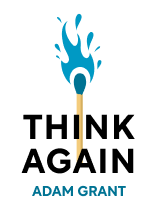

This article is an excerpt from the Shortform book guide to "Think Again" by Adam Grant. Shortform has the world's best summaries and analyses of books you should be reading.
Like this article? Sign up for a free trial here.
How are decisions made in your organization? Is it ever a good idea to let employees question the leader’s decisions?
In most organizations, key decisions are made by team leaders and executed by lower-rank employees. Decisions made at the top are almost never questioned or scrutinized. According to Adam Grant, the author of Think Again, team leaders should not only share their decisions, but also the entire decision-making process they used.
With this in mind, here’s how to improve decision-making in the workplace by introducing transparency to the process.
Decision-Making Process in the Workplace
The decision-making process—gathering data, generating ideas, and analyzing ideas—is where you, as a leader, can most effectively effect positive changes in your organization.
To improve decision-making in the workplace, consider introducing transparency to the process: Instead of having team members share only their final decisions, they should share how they have come to those decisions.
There are several benefits of team members sharing their entire decision-making process:
- A thorough explanation of the group’s thinking helps the whole team understand how and why decisions were made. Those outside the process can point out possible weaknesses or alternate solutions.
- When the decision-making process is communicated and fully documented, mistakes are less likely to be repeated in future iterations. Fully documenting the process can allow others to fix faulty underlying logic that may have contributed to an unsuccessful result.
- This way of making decisions and communicating the process prompts team members to think through new ideas, investigate the processes that generated those ideas, and analyze the conclusions. As we saw earlier in the guide, this can kickstart the Reconsideration Process because it encourages everyone to recognize what they don’t know and begin to question prior assumptions.
Outcome Bias in Decision-Making
Grant emphasizes the importance of processes (like the Reconsideration Process) over outcomes, but human beings are cognitively biased to focus on outcomes instead. Indeed, psychologists use the term “outcome bias” to describe the tendency to evaluate decisions based on outcomes rather than processe.
Criticism is often heaped upon the decision-maker when an outcome is negative, even if there are other uncontrollable factors involved. Similarly, positive outcomes are associated with wisdom and intelligence on the part of the decision-maker, even if there was a fair amount of luck and chance in play.
However, focusing on process does help you work against this cognitive bias—leading to better awareness of all the elements involved in an outcome so that decision-makers can be accurately understood and assessed.

———End of Preview———
Like what you just read? Read the rest of the world's best book summary and analysis of Adam Grant's "Think Again" at Shortform.
Here's what you'll find in our full Think Again summary:
- Why the ability to reconsider is more important than precise knowledge
- How knowledge and expertise can narrow your thinking and limit your potential
- How to improve your ability to reconsider things in work and in life






